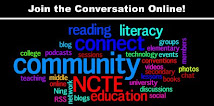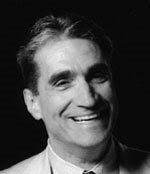In December of 2006 the New York Times published an article about poetry critic and teacher Helen Vendler. Here are some excerpts:
Here she is in a brief (~2min) video at You Tube:
. . . Vendler was born Helen Hennessy in Boston in 1933. Although she was encouraged to read poetry — her mother, a former schoolteacher, had memorized many poems, and her father taught Romance languages at a high school — her parents forbade her to attend the prestigious Boston Latin School for Girls, and later Radcliffe, because, like many devout Roman Catholics at the time, they accepted the church’s strong disapproval of secular education. Instead she enrolled in Boston’s all-female Emmanuel College, hoping to study literature, but “literature, I discovered with disgust, was taught as a branch of faith and morals,” she recalled in a 2001 lecture. That experience “inoculated me forever against adopting any ism as a single lens through which to interpret literature.”
Vendler switched to the sciences, and after graduation was awarded a Fulbright fellowship to study mathematics in Belgium. “I loved math and I loved organic chemistry because they have structures and I love structures,” she said. But on the stormy trans-Atlantic voyage, Vendler had a reckoning with herself. “And I decided, now that I was free, I would do English, because that’s what I had always wanted to do.” With the Fulbright commission’s blessing, she switched to literature.
. . . Today Vendler seldom reviews poets under 50, since their “frames of reference,” she says, are alien to her. “They’re writing about the television cartoons they saw when they were growing up. And that’s fine. It’s as good a resource of imagery as orchards. Only I’ve seen orchards and I didn’t watch these cartoons,” she said. “So I don’t feel I’m the best reader for most of the young ones.”
These days Vendler is more focused on late style. In April, she will deliver the prestigious Mellon Lectures at the National Gallery of Art in Washington. Her topic will be the final books of Wallace Stevens, Sylvia Plath, Robert Lowell, Elizabeth Bishop and James Merrill, and how each wrestled with what Yeats called “death-in-life and life-in-death”: writing about life facing impending death, and writing about death while still immersed in the world. “It used to be easier to deal with when you had heaven to believe in, when there was another place to go at the end of your poem,” Vendler said, as the late afternoon sun came through her office window. Death without heaven “produces more stylistic problems.” Vendler has recently finished the book on Yeats’s poems that she first wanted to write as a dissertation, but abandoned, she said, because at 23, “I didn’t have the life experience to penetrate them or resonate with them.” Life and life’s work, seamlessly intertwined.
Read the full article at the NY Times site.
Links to several of Ms. Vendler's articles can be found at the NY Books site. The site allows access only with paid subscription.Here she is in a brief (~2min) video at You Tube:






















No comments:
Post a Comment